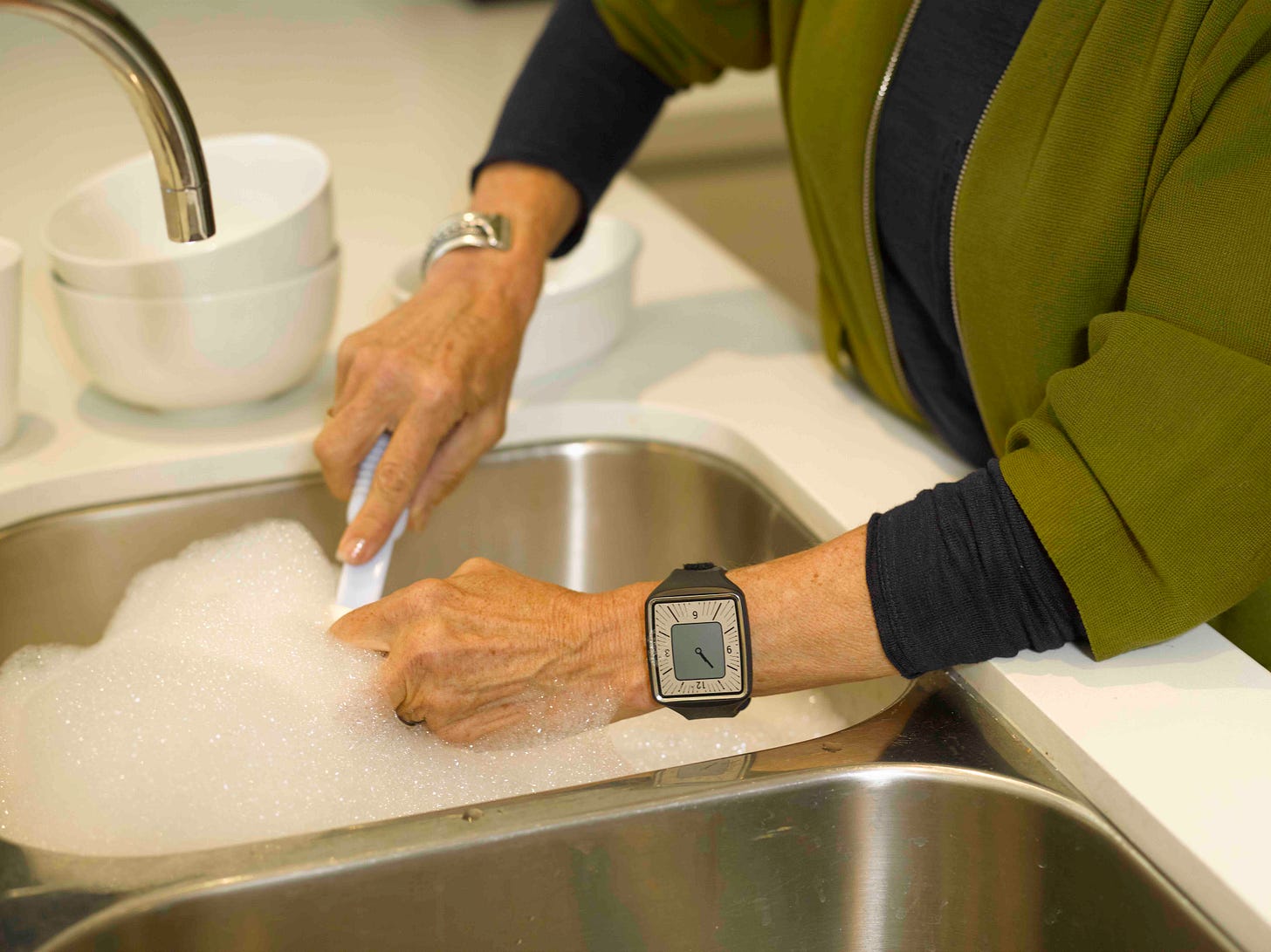The Parkinson's Smartwatch
Just how miraculous is it?
Over the Easter weekend, news broke of a revolutionary device for people with Parkinson’s. “NHS smartwatch for Parkinson’s patients hailed as ‘lifechanging’” said the Guardian. “Smartwatches give Parkinson’s patients check-up at home.’” read the headline in the Times.
A smartwatch called the PKG - the Personal KinetiGraph - which measured the symptoms of Parkinson’s, was going to mean people could be monitored from home. The data from it would allow doctors to adjust treatment based on real time information rather than the patient’s vague memories of how they reacted to their medication. The watch also had a feature reminding users to take their drugs on time.
The project developed by the University of Plymouth and the NHS had already seen hundreds of people given watches to test and, according to the press release, they “could be rolled out across the country to the around 120,000 people who have Parkinson’s.”
And there was an extraordinarily enthusiastic quote from the NHS chief executive Amanda Pritchard about what the PKG might mean for people with Parkinson’s: “This small watch will dramatically improve their quality of life – providing a thorough review of their health and ensuring they get the care they need from the comfort of their own homes.”
Wow, I thought, how exciting - I wonder when the KinetiGraph will arrive through my letterbox. I’ve written before about the importance of finding better ways of measuring the symptoms of Parkinson’s and the frustration of turning up for your annual appointment and trying without much success to answer the key question - “how have you been?” I’ve heard of numerous projects to diagnose and assess Parkinson’s using wearable technology and even participated in one trial run by Imperial College.
But all of those projects were at an early stage, Now it seemed that the PKG, developed by a company called Global Kinetics which has been working on this technology since 2007, was an oven-ready device, available to all. While I wasn’t convinced by all of its features - I already have a smartphone app which reminds me four times a day to take my medication - this smartwatch appeared to provide just the kind of precise data about the progression of Parkinson’s that both clinicians and patients have been seeking.
So when is mine being delivered? Sadly, after a conversation with one of the University of Plymouth academics running this project, I’ve realised I may have a long wait. Edward Meinert, a software engineer, is working with Dr Camille Carroll, a professor of neurology who has developed what is described as a home based care pathway for people with Parkinson’s.
He says the idea is that by collecting data from the watch “that can be used by clinical teams to make adjustments and interventions to patients not on an annual basis, but more in real time.” The results of small scale trials so far have been encouraging but we are still far away from a national rollout - the next stage is to give watches to around 600 people in Devon and Cornwall and test what Mr Meinert describes as the very challenging task of integrating the smartwatch data with NHS clinical systems.
This latest trial has been funded by a £500,000 NHS grant and it appears it was this which generated the rather over excited press release and last weekend’s newspaper stories. With the watches costing £175 each and a major training programme needed to show doctors and nurses how to use the data, a nationwide rollout will be an expensive business.
As an enthusiast for this kind of technology, I’m convinced the PKG smartwatch could play an important role in improving the care of people with Parkinson’s, But one line in the NHS press release worries me, This project, says Amanda Pritchard, will prove “more efficient for the NHS – freeing up space and time in hospitals for our hard-working staff.”
We “Parkies” wait a long time between appointments with our neurologists - sometimes more than a year. Yes, if the smartwatches work well then they may make remote consultations more effective - but sometimes you actually need to see the doctor face to face. And if the technology is used as an excuse to make that kind of contact even more rare then many of us may begin to resent it.



I'm removing this comment by the end of today unless you can prove that you are a real person with Parkinson’s rather than someone paid to promote this clinic - as has happened many times before on this newsletter
I was diagnosed of Parkinson’s disease. After years on medications, symptoms worsened with tremors on my right hand, numbness and tingling, muscle weakness and loss of speech. Fortunately last year, i learnt about Health Herbs Clinic and their Parkinson’s disease alternative treatment ( healthherbsclinic . com ), the Parkinson’s disease treatment made a great difference, most of my symptoms including tremors, weakness and others gradually disappeared. I improved greatly over the 6 months treatment, it’s been a years since the treatment, i have no symptoms. I have a very good quality of life and a supportive family!